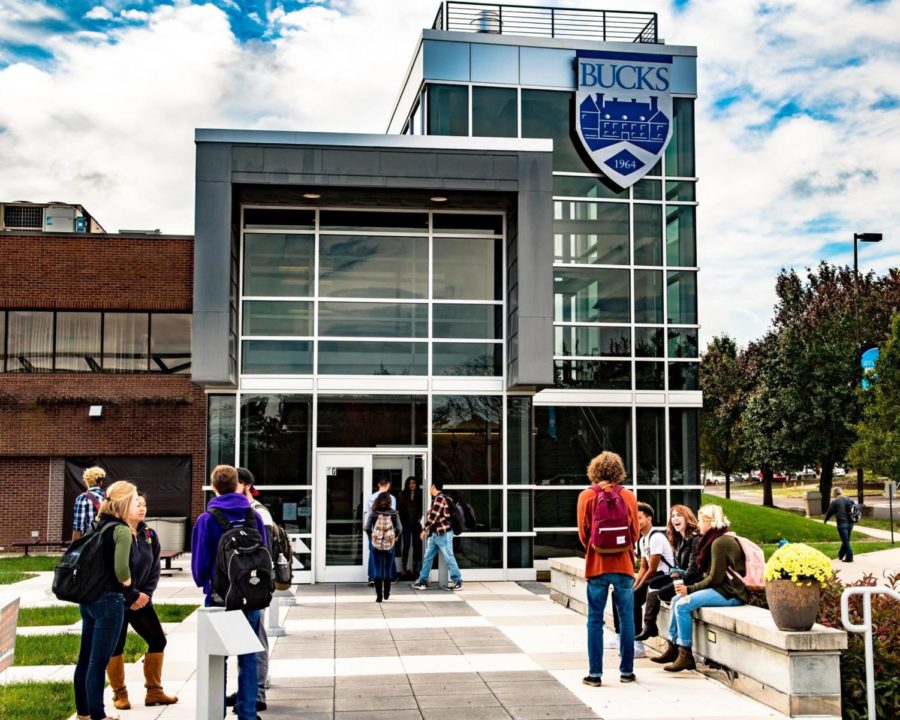“Safe spaces” are popping up in colleges and universities around the country, aiming to provide a nurturing environment for students ‘triggered’ by opposing beliefs, but others worry that freedom of speech may be compromised.
Safe spaces were created to offer students who are “triggered” with a place to retreat to in order to avoid what they may consider disturbing or opposing views. However, this shelter could be providing students with an unrealistic depiction of the “real world” after college, where it is entirely legal and entirely likely to encounter opinions that offend them.
Alexa Lipkin, 19, a political science major from Morrisville, offers a middle-ground stance; “I believe people who don’t wish to be exposed to harsh commentary definitely have the right to opt out and go to a ‘safe space’, but I also don’t agree with them telling others not to voice their opinions, even if they find them ‘offensive’.”
This is a major concern. College is about discovering people with different viewpoints from different backgrounds and cultures. If safe spaces are taken to the extreme, they could potentially infringe on the First Amendment, which scares some Bucks students.
“People need to grow up and learn to deal with people who have different opinions,” said Kevin Smith, 18, a business major from Croydon, “The problem is different people need to communicate, not ignore what they disagree on.”
However, on the Bucks County Community College campus, Pastor Aden, a radical speaker who voices harsh commentary, often makes students uncomfortable and, when situated in the center of foot traffic at the college, is potentially distracting to classroom instruction. However, he is protected under the First Amendment and is legally allowed to “preach”.
While students may want to hear one another’s opinions in a classroom setting, few want to feel unsafe or targeted on their own campus.
“There should be safe spaces,” said Urte Titkaite, 19, a science major from Morrisville, “Many students go through familial, social, and educational difficulties, as well as harsher problems like sexual assault. They have trouble opening up in the first place. A safe space could let them reflect and calm down if a speaker offends them or brings up a traumatizing memory. People say many offensive and ignorant things.”
While communication is key, radical speakers, specifically Pastor Aden, aren’t always open to constructive criticism, and will instead target any student who speaks up. Striking a compromise may be more difficult than previously predicted.
Education professor Shaun Harper from the University of California—Berkeley offers an argument that is pro-free speech, saying, “A university really is supposed to be a marketplace of ideas, and those ideas can and should be divergent at times.”
His opinion was voiced after a controversial speaker Jessica Vaughan of the Center for Immigration Studies hosted a debate on campus, and students rallied together, shouting and playing sirens to disrupt the debate, according to U.S. World and News Report. Based on this opinion, Pastor Aden is actually enriching the students’ lives and giving them a glimpse into others’ perspectives, no matter how radical.
While controversy on hate speech versus free speech continues, some students truly do want to listen – and learn – from their peers.
Jeanette Weinberg, 19, a liberal arts major, from Yardley; “I believe that people should have the freedom to say what they believe, and others should be open to listening. In a classroom setting, people can learn about other’s opinions, and even if those people don’t like what others are saying, they can then form an educated and personal opinion. I think a safe space has pros and cons. If someone has something truly horrible or triggering from their past, they have the right to leave. But, if they just simply disagree with a classmate, it’s always a good idea to listen. I’ve met people whose ideas I completely disagree with, but I also have learned from them. If both sides aren’t communicating, they aren’t learning and that’s not a good sign for the education system in general.”
The key is balance; those who wish not to listen can opt out, but must be aware that their opinions may not be the most unbiased or informed.


